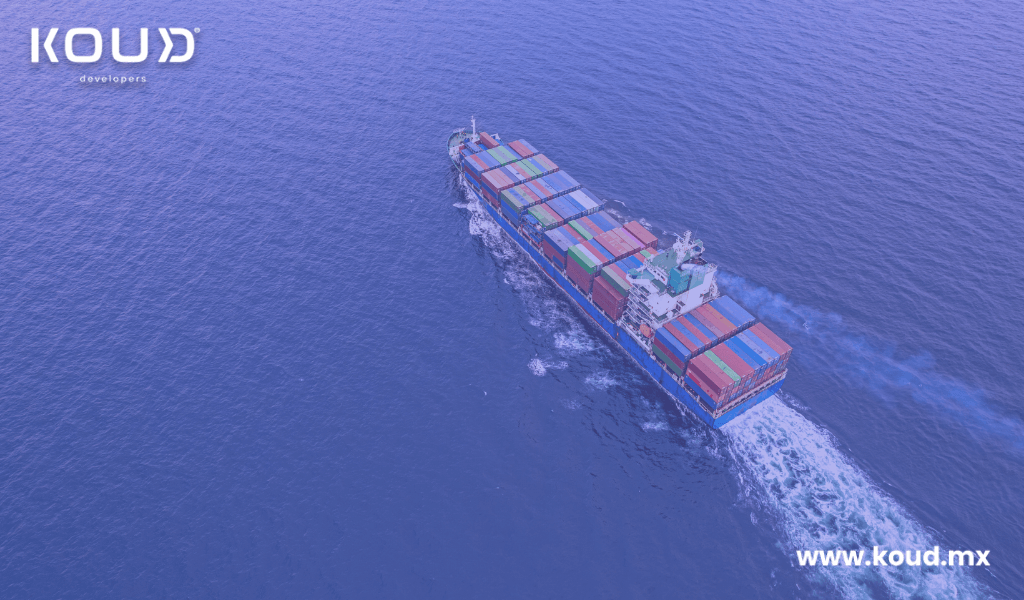Logistics Software: key factors for improving route management
In a world where efficiency and delivery speed are crucial to customer satisfaction, route management has become a fundamental aspect of logistics operations. Companies that manage fleets and delivery services face the challenge of optimizing their routes to reduce costs, improve delivery times, and better manage their resources. Using logistics software specialized in route management allows businesses to address these challenges efficiently and strategically.
In this article, we will explore the key factors for improving route management through logistics software and how these tools can transform a company’s operations by increasing efficiency and reducing costs.
Logistics Software: key factors for improving route management
1. What is route management logistics software?
Route management logistics software is a technological tool designed to optimize the planning and execution of transportation routes, whether for local deliveries, long-distance transport, or any service involving vehicle movement. This type of software analyzes multiple factors, such as traffic, weather conditions, distance, and vehicle performance, to plan the most efficient route, improving both delivery times and resource utilization.
2. Key factors for improving route management with logistics software
Companies that use route management software can benefit from better planning, cost reduction, and greater operational efficiency. Below are some key factors to optimize route management using this type of software:
a) Route planning and optimization
Logistics software allows dynamic route optimization, considering multiple factors such as real-time traffic conditions, client time restrictions, and vehicle capacity. This ensures that routes are planned more efficiently, reducing travel time, fuel consumption, and operational costs. Additionally, these tools can reprogram routes on the go to adapt to unexpected changes, such as delays or cancellations, providing greater operational flexibility.
b) Real-time tracking
One of the most valuable features of route management software is the ability to track vehicles and deliveries in real-time. Fleet managers can monitor driver locations, receive updates on delivery status, and adjust routes based on operational needs. This level of visibility allows better decision-making and ensures that any issues are addressed quickly.
c) Operational cost reduction
Route optimization not only improves delivery times but also helps reduce operational costs. By using shorter and more efficient routes, fuel consumption, vehicle wear and tear, and costs related to driver overtime are minimized. The software also helps avoid congested or costly routes, such as toll roads, providing additional savings.
d) Vehicle capacity management
Route management software also facilitates vehicle capacity management. With the ability to schedule and manage loads more efficiently, companies can maximize the use of each vehicle, ensuring that every trip carries the optimal load. This not only improves operational efficiency but also helps reduce the carbon footprint of logistics operations.
e) Improved customer satisfaction
A well-implemented logistics software enables companies to better meet delivery deadlines, increasing customer satisfaction. Through real-time tracking and the ability to offer more accurate delivery windows, companies can enhance their customer service by ensuring fast and reliable deliveries.
f) Automation and custom reports
Route management software automates many processes that were previously done manually, such as route planning, vehicle assignment, and delivery status updates. This automation reduces human error and improves efficiency. Additionally, many solutions offer customizable reports that allow logistics managers to monitor key performance indicators (KPIs), such as average delivery time, cost per kilometer, and fuel consumption, enabling strategic adjustments based on data.
3. Considerations when choosing route management logistics software
When selecting logistics software specialized in route management, there are several key factors you should consider:
a) Ease of use
It’s important to choose a tool that is intuitive and easy to use for all team members, from fleet managers to drivers. Software that is too complex could slow down operations instead of improving them.
b) Integration with other systems
Ensure the software can easily integrate with other systems used by your company, such as ERP, CRM, or inventory management platforms. This will allow centralized management of all logistics operations.
c) Support and updates
The software provider should offer ongoing technical support and regular updates to ensure the platform remains efficient and equipped with the latest technologies, such as artificial intelligence or machine learning for predictive optimization.
d) Scalability
Choose software that can scale alongside your business. As your fleet grows or operations expand, the tool should be able to adapt to new demands and workloads.
4. The future of logistics software and route management
The future of route management will be driven by advanced technologies such as artificial intelligence (AI), machine learning, and the Internet of Things (IoT). These technologies will enable greater automation, precision in route planning, and better anticipation of problems before they occur. The ability to analyze large volumes of data in real-time will also allow operations to improve more proactively, optimizing logistics from start to finish.
Logistics software specialized in route management can transform a company’s logistics operations, improving efficiency, reducing costs, and increasing customer satisfaction. Route optimization, real-time tracking, and process automation are just some of the keys to achieving optimal performance in fleet and delivery management. Investing in this type of technology is a strategic decision for any company looking to stay competitive in today’s environment, where speed and precision in deliveries are crucial factors.

